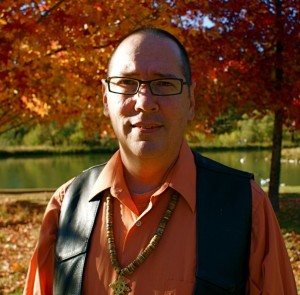 “In the Gospel of St. John it is written: “Very truly, I tell you, no one can see the kingdom of God without being born from above.” Further, it is written, “Very truly, I tell you, no one can enter the kingdom of God without being born of water and Spirit. What is born of flesh is flesh, and what is born of Spirit is spirit. Do not be astonished that I said to you, ‘You must be born from above.’ The wind blows where it chooses, and you hear the sound of it, but you do not know where it comes from or where it goes. So it is with everyone who is born of the Spirit” (John 3:3, 5-8).”
“In the Gospel of St. John it is written: “Very truly, I tell you, no one can see the kingdom of God without being born from above.” Further, it is written, “Very truly, I tell you, no one can enter the kingdom of God without being born of water and Spirit. What is born of flesh is flesh, and what is born of Spirit is spirit. Do not be astonished that I said to you, ‘You must be born from above.’ The wind blows where it chooses, and you hear the sound of it, but you do not know where it comes from or where it goes. So it is with everyone who is born of the Spirit” (John 3:3, 5-8).”
Today we are joined by Tau Malachi: author, founder of the Ecclesia Pistis Sophia, and teacher of the Sophian Gnostic Tradition!
B Dave Walters: Good afternoon, Tau Malachi and thank you for joining us!
Could you tell us a little bit about yourself and Sophian Gnosticism for our readers who may not be familiar with you or your work?Tau Malachi: It is good to speak with you Brother Dave, thank your for inviting me! It’s my prayer and heart-wish that God blesses you and your spiritual work.
The Sophian Gnostic Tradition is said to have emerged in the 17th Century, but the modern lineage comes into being through a British woman, a holy woman, named Tau Miriam in the 1880’s. She had a very deep, intimate experience of the Risen Christ during a spiritual retreat, and entered into an experience of what she called Supernal or Messianic Consciousness; the teachings and practices she shared flowed from this enlightenment experience, and from it our tradition of Christian Gnosticism and Christian Kabbalah came into being.Essentially, the Sophian Gnostic Tradition is a spiritual and mystical form of Christianity, with deep root in the mystical tradition of Judaism, the Kabbalah. As we know, Yeshua, Jesus, was a Jewish teacher, mystic and prophet, and therefore if he imparted deeper spiritual teachings to his disciples they would express something of the Kabbalah; hence our focus upon the Holy Kabbalah.The name “Sophian” comes from our honoring of the Divine Feminine joined with the Divine Masculine, and our focus upon a restoration and greater revelation of the Divine Feminine in Christianity; as much as speak of God the Father, we also speak of God the Mother, and we view St. Mary Magdalene as the inmost disciple and spiritual consort of Yeshua, Jesus, and view her as a co-preacher and co-redeemer. It is our belief that she is an embodiment of the same Christ Spirit, the same spiritual illumination.
Our tradition is founded upon direct spiritual and mystical experience of Christ and the Holy Spirit, and teaches a path of self-realization in Christ, a conscious evolution into Supernal or Messianic Consciousness – through direct experience we acquire spiritual knowledge (gnosis), hence the name “Gnostic.”
Basically speaking, we believe that we are all meant to embody Christ and the Holy Spirit just as Yeshua, Jesus, and the Magdalene did, and this enlightenment experience becomes the focus of our spiritual life and practice.I came to the Sophian Gnostic Tradition as in my childhood. From my early youth I was prone to the experience of visitations of Magdalene and angelic beings in dreams and visions, and when I was eight I met Tau Elijah, my spiritual teacher and guide, and he introduced me to the Sophian Gnostic Tradition and shared the teachings and initiations with me. His teacher and guide was Tau Miriam, and like her was a living spiritual master in the West, having entered into the same spiritual illumination in Christ. The years I was with him were an amazing blessing and adventure, and basically speaking I had the great privilege of becoming his last disciple and protégé, and I received the blessing from him to become his successor in the lineage, a Tau in the tradition.
Along with becoming a Tau in the Sophian Gnostic Tradition, I have also been blessed to receive consecration as a Bishop in the Independent Apostolic Movement, so I also carry more traditional lines of apostolic succession, along with other esoteric lineages. The focus of my call and spiritual work, though, is the Sophian Gnostic Tradition. Joined with the publishing of books on Sophian Gnosticism, or our Christian Kabbalah, and the open sharing of teachings and practices of our tradition on the internet through our main website, we have also founded an international Gnostic Church (Ecclesia Pistis Sophia) in recent years to represent our lineage and tradition in modern times, and to engage in a larger outreach.
I’m very fortunate, very blessed, for I’m able to spend my days sharing teachings and engaging in spiritual practice – my work is getting to play in Spirit all day long!B Dave Walters: It must have been quite a blessing to be exposed to such a teacher when you were only 8 years old! I know in many mystical traditions the teachings are secret and meant to be shared only from student to teacher, yet your books seem to reveal very freely what you have been taught. What made you decide to publish so much of the Sophian tradition?
Tau Malachi: Originally our lineage was a completely oral tradition, passed on through small, private groups of spiritual friends, but in 2001 there was a distinct call in the Mother Spirit for an open sharing of our teachings and practices, and a feeling of a deep need to a more radical extension of the Holy Light – this lead to the writing and publication of five books, the creation of a website, and the founding of the EPS. Today, through the blessing of modern technology we have the ability to teach spiritual friends who live at a distance; but still there is a play of visitation and receiving teachings in person, and there are teachings that are only given in person.
B Dave Walters: What books have you written so far, and do you plan to write anymore in the near future?
Tau Malachi: The first book was the “Gnostic Gospel of St. Thomas: Meditation on the Mystical Teachings,” then “Living Gnosis: A Practical Guide to Gnostic Christianity” followed; after that “Gnosis of the Cosmic Christ: A Gnostic Christian Kabbalah,” “St. Mary Magdalene: The Gnostic Tradition of the Holy Bride,” and the last book was “Gnostic Healing: Revealing the Hidden Power of God.” At present, we are contemplating self-published materials, and my writing is focused on an open sharing via the internet; I’m not certain we will use mainstream publishing again, but that will depend upon the inspiration of the Spirit.
B Dave Walters So, for our readers who are not familiar with you, or your work: does Sophian Gnosticism conflict with more ‘traditional’ Christianity? Are your students required to give up their current churches, or any common mainstream Christian beliefs?
Tau Malachi: We share many of the same essential points of faith with sisters and brothers in mainstream churches, but we tend to venture deeper into esoteric and metaphysical dimensions of the Gospel, and as much as viewing Christ as the Savior, we also view Christ as the Gnostic Revealer, a teacher of a path to self-realization or enlightement. You might say we share advanced teachings of Christianity. We do have some views, beliefs, significantly different than those of mainstream Christianity, but we do not view differences as a conflict or contradiction – there is an outer, inner and secret Gospel, and for us the outer, inner and secret are completely interwoven. In our extended community, the EPS, we have some members who attend other, mainstream churches, as well as being members of our gnostic church.
B Dave Walters: What about members of other religious traditions? I have personally found many of the principles of practices of Buddhism mesh very well with many forms of Christianity; do you believe it is possible to be a ‘Gnostic Buddhist‘ or a ‘Gnostic Jew’, or even a Gnostic Muslim? Well…Gnostic Sufi Muslim?
Tau Malachi: We do have some members who also practice in other wisdom traditions, though most are focused upon Christian faith and gnosis. In regards to “gnostics” within other wisdom traditions, basically by “gnostic” we mean mystic, and mystics occur within all authentic wisdom traditions. Likewise, “gnostic” implies enlightenment, and many wisdom traditions teach a path to enlightenment.
B Dave Walters: Indeed.
Do you believe that religion has any place in politics? Particularly, how do you feel about some forms of mainstream Christianity being lumped together with the political Right?Tau Malachi: I really do not see religion having a place in politics, not in the modern world and an evolving global society; and a single religion gaining greater dominance in politics seems very dangerous and seems like an injustice to peoples who have other faiths and views.
Of course, I also don’t believe real change comes through politics, but rather through a transformation of consciousness, a change of heart and mind and life, so I do not focus much on politics – neither did Jesus, Yeshua, as I recall.B Dave Walters: I tend to agree. Religion should inform our world view and day to day life, but not really be used as a tool to oppress people who see things differently
In my opinion, the average ‘Believer’ is somewhat cut off from the essence of their faith. It seems to me that many Christians, and religious people of all stripes put more emphasis on believing certain ideas rather than *living* their Faith. What suggestion would you have for someone who wants to have a deeper personal experience of the presence of God in their life?Tau Malachi: We need to learn to go within and live within, and open to the Light from above, and living within, we need to learn to pray and meditate, engaging in daily spiritual practice; joined with this, we need to cultivate compassion and love, and let compassion and love guide our thoughts, speech and actions. In general, this is true regardless of what faith or tradition we practice in.
B Dave Walters: Well said!
Thank you for talking with us today, Tau Malachi; where can we go to find out more about you and Sophian Gnoisticm?Tau Malachi: Our website is at: www.sophian.org
B Dave Walters: Excellent; is there anything else you’d like to share or any parting words you have for our friends reading this?
Tau Malachi: In the midst of what seem to be very tumultuous times, there is much good that’s happening – more than focusing on the tumult, or shades and shadows, its better to ficus on the good, and labor to draw out the good. There is a great need for spiritual hope, and as spiritual people there is a need for us to embody a vision of hope. This seems very important in these times.
I pray God blesses you, and all our friends reading the discussion.
Thanks again to Tau Malachi for speaking with us today, he can be reached at his website Sophian.org and on the Ecclesia Pistis Sophia Facebook Fan Page!
What do you think ? Feel free to comment down below!
You are great, and I love you!
And if you love me back, click ‘share’ up at the top!
B. Dave Walters
Writer, Life Coach, and Talk Radio Host
Find out more about me:
http://about.me/BDaveWaltersAsk me anything:
http://formspring.me/BDaveWaltersPages I support:
Jesus and Buddha — Interfaith dialogGnostic Theism — Religion and Spirituality for the 21st Century (Join the Movement!)
Love One Another — A group for the coolest Spiritual people on the Internet!
More from Beliefnet and our partners

